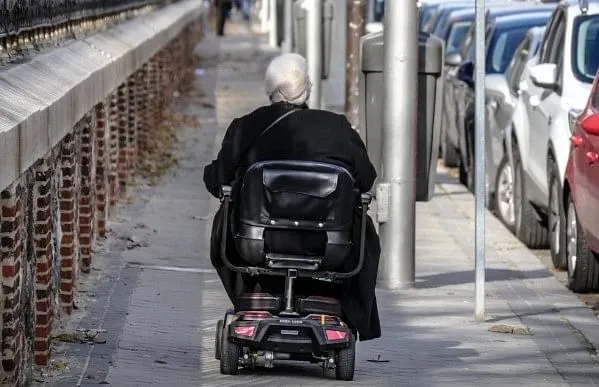We are disabled by buildings that are not designed to admit us, and this in turn leads to a range of further disabilities regarding our education,political setup,religious institutions, our social lives and so on. Disablement lies in the construction of society, not in the physical condition of the individual.
Week’s ago Hon’ble High Court of Jammu and Kashmir passed an order in a public interest litigation where the challenges and struggles of disabled citizens were discussed.
I would like to bring before the state of the “group of individuals that are referred to as “disabled”, all over the world. Disability is understood as a biological given. Whenever a disabled is confronted with problems, the origin is considered his/ her impairment. This individual is seen as a victim of fate rather than a helping hand or one of the contributors to their society.
Like other vulnerable sections of society that have come a long way in gaining recognition and full involvement in the wider society. This section too has its struggles and ordeal to put forth. Many activists such as Anita Ghai states the rights of the disabled have been recognized only very recently, especially in the rigid society that looks up to bodily perfection, all deviations from the ‘perfect body’ signify abnormality.
Therefore, the question arises of how long we are going to take to accept and understand that disability, handicapped , crippled, blind and deaf all these labels accentuate and demean the victim status for the disabled person, the cultural construction of our society looks at disability as essentially a characteristic of every such individual, their impaired body is seen as the result of their fate.
A practicing advocate of JK High Court, Mr. Badrul Duja has approached the Court of law for the importance of sensitivity to be taken care of while addressing specially abled persons in internal and external communications of govt offices, orders, notifications, Judicial orders, etc. The petitioner through the PIL sought directions that give us a whole new perspective of how we see specially-abled individuals and also how our society fails to cater for them.
Some of the important takeaway from the Court’s order are listed below :
Police to record statement of disability victim at their residence of place of convenience :
As per criminology studies women, children and disabled persons are more vulnerable to victimology and face violence more often than the rest. In such a situation disabled victims need more care and legal protection from law enforcement agencies. For a disabled person or specially abled person everyday is a challenge. Same is approaching the police station for recording their statement under 161CrPC as public offices are inaccessible for disability friendly infrastructure and recent order of Hon’ble High Court will ease disabled victims of crime. Now law of the land is that police will have to approach their house for recording of their statements.
Persons suffering from disabilities have their own name and are not mentally retarded, abnormal, crippled, mad, lunatic, troubled person etc:
The court order also declared that labelling and mentioning persons with disabilities with names such as mentally ill, retarded, insane, crippled, unfortunate, mad, lunatic, mongoloid, troubled person etc must be discontinued and specially able persons be treated properly by the language recognized internationally.
Disability sensitive terminology/language:
Across the globe disabled persons are now known as specially-abled persons and disability sensitive nomenclature has been introduced so that words while talking about disabled persons are respectful of human values and dignity.
In the year 2019, UN introduced disability inclusive language guidelines and a list of then words were provided as a replacement inplace of old colonial words. UN list held that words like insane, crazy, maniac, psycho, hypersensitive, lunatic, demented, panicked, agitated,deformed , mentally ill should be avoided and in place of this person with a psychosocial disability word should be used.
Similarly UN declared that words like retarded, simple, slow, afflicted, brain-damaged, intellectually challenged, subnormal, of unsound mind, feeble-minded, mentally handicapped should be avoided and in place of these person with an intellectual impairment, intellectual disability should be used.
‘Mental retardation’ word still prevalent in The National trust for the National welfare of persons with autism, cerebral palsy, mental retardation and multiple disabilities act 1999: In the same PIL pending before High Court of JK ‘mentally retarded’ word used in the said act has been challenged as such a word is violative of dignity and equality and seeks replacement of the same with that of UN prescribed word.
All this indicates the necessity and importance of awareness and recognition of the rights of every individual and a change in our attitude, definition and notions toward differently abled to view them as an important part that can be an efficient part of our society rather than subjecting them to social exclusion.
We as conscious members of our society have to recognize that these individuals face impairment, and exclusion and alienation not only because of the disability they may have but also because our society is built in a manner that does not cater to their needs and demands.
Therefore the need for their development or in other words for the development of our society is imperative and fortunately, the recent order of the Hon’ble High court of Jammu, Kashmir and Ladakh has opened a needful debate on disability rights and law.
Farha Wani is a educator and advocate by profession.
Disclaimer: The views and opinions expressed in this article are the personal opinions of the author.
The facts, analysis, assumptions and perspective appearing in the article do not reflect the views of GK.






